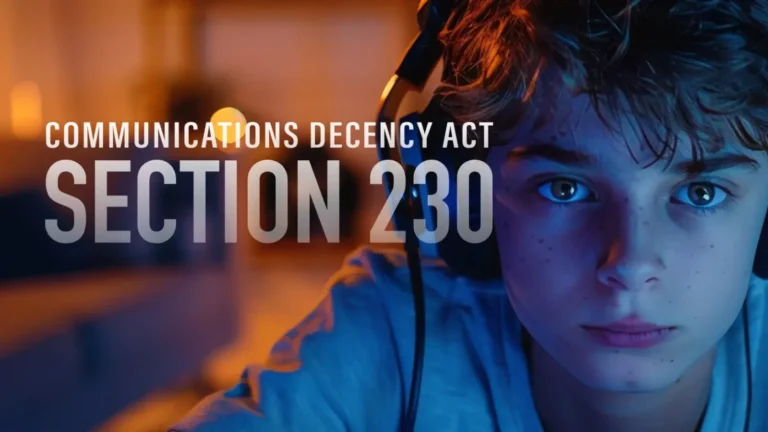Anti-Trafficking Organizations and Haba Law Firm File Amicus Supporting Reversal in M.H. v. Omegle
Washington, DC (March 31, 2022) – The National Center on Sexual Exploitation (NCOSE), the International Association of Human Trafficking Investigators, United Abolitionists, Paving the Way Foundation, Justice Restoration Center, and The Haba Law Firm, filed a joint Amicus Brief supporting a young girl who was exploited at the age of 11 on the popular internet platform Omegle. The brief supports the girl and her family’s appeal in M.H. v. Omegle.com LLC, where they are asking the U.S. Court of Appeals for the Eleventh Circuit to reverse the U.S. District Court’s dismissal of the case.
Omegle is a free online chat website visited by millions of people daily, and best known for pairing strangers. The company states: “When you use Omegle, we pick someone else at random so you can have a one-on-one chat.”
“Omegle and other web platforms claim to have broad immunity under CDA Section 230 even when they knowingly facilitate the connection of sexual predators to children. However, a plain language reading of CDA 230 and its FOSTA amendment shows that Congress intended to both prevent the exploitation of children online and deter and punish the bad actors that participate in child exploitation and harm. Congress never intended to give immunity to websites that make money from connecting sexual predators with children,” said Peter Gentala, senior legal counsel at the National Center on Sexual Exploitation.
“Omegle randomly pairs users like the minor plaintiff in one-on-one anonymous chat sessions and has no screening or age verification process in place – making it a virtual playground for sexual predators who trick or threaten children into committing sexual acts over live web feeds, while often simultaneously recording,” said Lisa Haba, partner with the Haba Law Firm, and co-counsel for the organizations on the amicus brief.
One such child was the plaintiff, C.H., the young girl in this case, who at the age of 11, encountered a dangerous sexual predator the very first time she went on Omegle. The interaction started innocently as she was placed in a chatroom with other minors. But when the session ended, things took a much darker turn.
When she entered the next chatroom, she was greeted with a black screen that began displaying text from an anonymous user – “John Doe” who told C.H. he knew her. He provided specific details about where she lived and threatened to hack not only her, but her family’s electronic devices, unless she immediately took off her clothes. Her tearful pleadings to not undress fell upon deaf ears, and she finally gave in to his request.
Devastated, C.H. quickly told her parents, who contacted law enforcement and brought a lawsuit against Omegle. But no lawsuit could repair the emotional damage to C.H., left with scars she might carry the rest of her life.
“Survivors like C.H. deserve justice and the Trafficking Victims Protection Reauthorization Act affords her that protection. As such, the Amici have asked the Appellate Court to reverse the case’s dismissal and seek true justice for C.H.,” concluded Haba.



